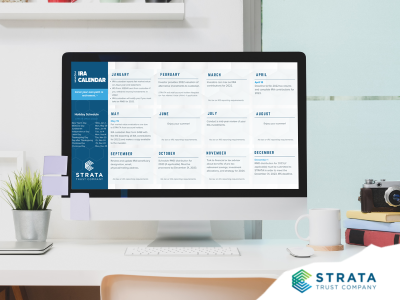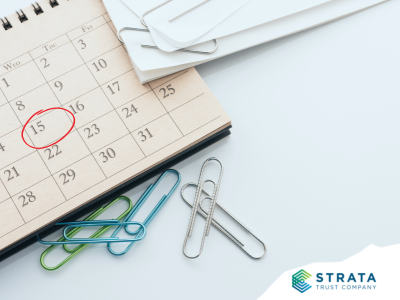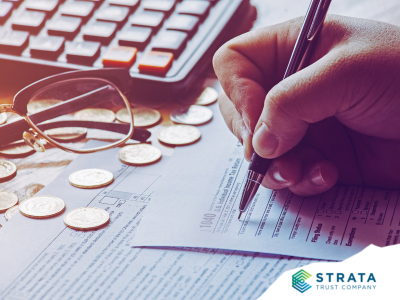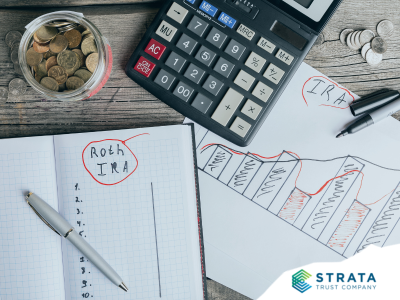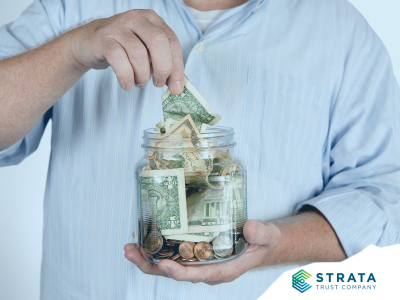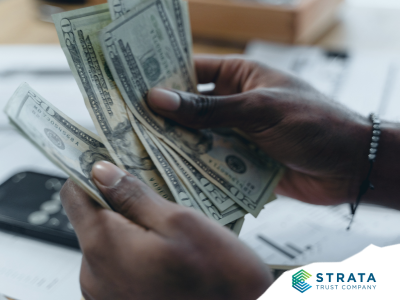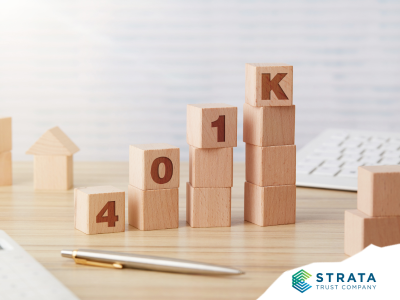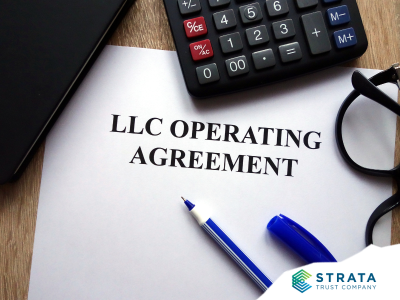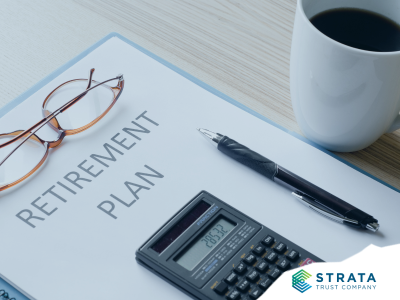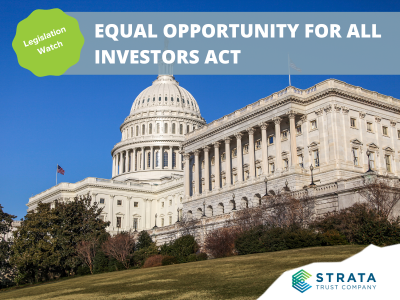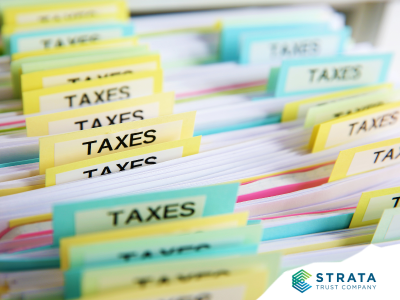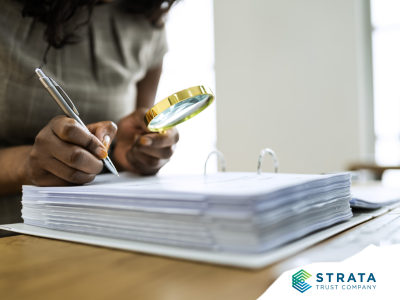A self-directed IRA (SDIRA) is a tax-advantaged retirement savings account that provides individuals with more investment options and greater control of their retirement savings than a traditional retirement savings plan. Attaining a basic understanding of the SDIRA investment process and learning common terminology that goes along with it is crucial when it comes to making financial decisions that can greatly impact your retirement savings.
While this is not a comprehensive list, here are 13 key terms that are essential for every investor.
1. Checkbook Control
Checkbook Control is a feature of Single Member LLCs (SMLLCs) in which the LLC has its own checking account. In the context of SDIRAs, an SMLLC is an LLC that is 100% purchased by funds that come from your SDIRA. Once established, the investor can purchase assets, make investment decisions, and write checks on behalf of the LLC. This allows the investor to direct funds between the business’s checking account and their IRA, without the help of a third party such as a custodian. Checkbook control is a complicated business structure within an SDIRA. These account types are often open to abuse (both intentionally and unintentionally) and can carry significant taxes and penalties. For this reason, STRATA Trust Company (“STRATA”) does not support checkbook control IRAs or SMLLCs.
2. Commingle
Commingle is a term meaning mixed or blended together. In a retirement portfolio, it describes an account type that includes assets from several different accounts, all blended together.
Precious metals investors have the option to select segregated or commingled storage. When the precious metals are commingled, they are held with other “like” precious metals. When the investor decides to sell, exchange, or take an in-kind distribution of the precious metals, they will receive the “like” precious metals and not the exact metals that were initially purchased.
3. Disqualified Person
The IRS restricts transactions between an IRA and certain individuals that are “at arm’s length”; these individuals are referred to as Disqualified Persons. These are defined as the accountholder and his/her spouse, lineal descendants (a blood relative in the direct line of descent- children grandchildren, great-grandchildren, etc. of a person), account fiduciaries, trustees, investment managers and advisors, and any corporate entity where the accountholder has at least 50% ownership.
4. Due Diligence
In the context of SDIRAs, Due Diligence refers to the investor’s responsibility of researching the investments and investment promoters/advisors they choose to work with before investing to mitigate risk on investment decisions. Visit STRATA’s Protect Yourself page for additional information and resources.
5. Fair Market Value
The Fair Market Value (FMV) of an asset refers to the estimated value of that asset. An FMV valuation is required for all SDIRA assets and must be reported to the IRS by December 31 of every year.
6. Income/Non-Income-Producing Property
A property purchased through your IRA that earns income by renting or leasing it out to others is known as an Income-Producing Property. A real estate investment that does not earn income through renting or leasing is known as a Non-Income-Producing Property.
7. Non-Recourse Note
A Non-Recourse Note is a type of loan secured by providing collateral and is the only type of loan allowed for an SDIRA.
8. Passive Custodian
An SDIRA custodian, like STRATA, is also referred to as a Passive Custodian. These custodians perform investment transactions only under the direction of the investor and do not provide investment advice or investigate the validity of an investment or investment promoter. For a comprehensive list of a custodian’s role, visit STRATA’s Get to Know Your Custodian page.
9. Prohibited Transaction
There are circumstances where the IRS prohibits certain investment activity – these exceptions are known as Prohibited Transactions. What constitutes a prohibited transaction is determined by intent – basically, any transaction that is intended for immediate personal financial gain rather than for your future retirement is considered prohibited. Common prohibited transactions include, but are not limited to:
- Personally borrowing money from the IRA
- Selling, leasing, or exchanging property to the account
- Accepting unreasonable compensation for managing property or assets held by the IRA
- Using the account as security for a loan
- Granting account fiduciaries permission to obtain, use, or borrow against account assets for their own gain
- Transferring plan assets, lending money, or providing goods and services to disqualified persons
For a complete list of prohibited transactions, see §IRC 4975.
10. Rollover
A Rollover refers to the action of transferring funds from one account to another while maintaining the tax-deferred status of the account. These transfers are usually triggered by a change of job, retirement, or lay-off.
A direct rollover takes place when the rollover check is payable directly to another qualified plan, like your IRA. An indirect rollover takes place when your plan administrator makes the rollover check payable to you directly, which may trigger tax obligations if not rolled over into another qualified plan within 60 days. Learn more about funding options, compare advantages, and overview timing requirements here.
11. Sweat Equity
Sweat Equity is a term used to describe the effort put into an investment property to boost its value. This includes physical/unpaid labor, mental effort, and time, for example. For SDIRA investors, sweat equity is considered a prohibited transaction per IRS rules.
12. Tax-Deferred
The term Tax-Deferred describes retirement accounts that allow you to accumulate growth while postponing the payment of income taxes on that money until it is withdrawn. A Traditional IRA provides the vehicle for tax-deferred investment growth. Learn more about the Types of SDIRAs and their tax advantages.
13. UBTI/UDFI
UBTI, or Unrelated Business Taxable Income, occurs when a retirement account earns active business income, which is considered unrelated business income under federal tax law, and is subject to its own tax. UDFI, or Unrelated Debt-Financed Income, occurs when a retirement account owns a real estate property that is debt-financed (with a non-recourse promissory note) and the property generates income. Learn more about UBTI/UDFI with STRATA’s Quick Guide to UBTI and UDFI.
More Information
SDIRAs come with many tax advantages and unique terminology that is necessary to understand in order to leverage them to their fullest. Although the list above does not completely cover all the terms you may come across in your investment efforts, it’s a great place to start learning. If you have questions about the investment process or SDIRAs in general, visit our Knowledge Center for educational FAQs or contact our self-directed IRA experts for more information.



